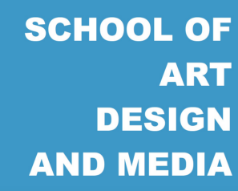Peer-reviewed articles in SCI journals
Xia, Y., & Chen, Y.* (2025). Driving Factors of Generative AI Adoption in New Product Development Teams from a UTAUT Perspective. International Journal of Human–Computer Interaction,41(10), 6067-6088. DOI: 10.1080/10447318.2024.2375686
Ma, Z., Gao, Q.*, Tian, Y., Chen, Y., & Yuan, Q. (2024). Effectiveness of cooperative and competitive gamification in mobile fitness applications among occasional exercisers. Behaviour & Information Technology, 43(11), 2401-2423.
Chen, Y., & Gao, Q.* (2023). Visualizing timeline-anchored comments enhanced social presence and information searching in video-based learning. Computer Applications in Engineering Education, 31(5), 1306–1320.
Chen, Y., & Gao, Q.* (2023). Effects of social media self-efficacy on informational use, loneliness, and self-esteem of Chinese older adults. International Journal of Human–Computer Interaction. 39(5), 1121-1133.
Ma, Z., Gao, Q.*, & Chen, Y. (2023). Post-Purchase Trust in e-Commerce: A Theoretical Framework and a Text Mining-Based Assessment Method. International Journal of Human–Computer Interaction. 39(8), 1643-1661.
Chen, Y., Gao, Q.*, & Gao, G. (2022). Visual Layout of Timeline-anchored Comments: Affects Attention in Video-based Learning. International Journal of Human–Computer Interaction, 38(9), 868-883.
Chen, Y., Gao, Q., Yuan, Q., & Tang, Y. (2020). Discovering MOOC learner motivation and its moderating role. Behavior & Information Technology, 39(12), 1257-1275.
Chen, Y., Gao, Q., Yuan, Q., & Tang, Y. (2019). Facilitating students’ interaction in MOOCs through timeline-anchored discussion. International Journal of Human–Computer Interaction, 35(19), 1781-1799.
Chen, Y., Gao, Q., Lv, Q., Qie, N., & Ma, L. (2018). Comparing measurements for emotion evoked by oral care products. International Journal of Industrial Ergonomics, 66, 119-129.
Chen, Y., Gao, Q., Song, F., Li, Z., & Wang, Y. (2017). Procedure and information displays in advanced nuclear control rooms: experimental evaluation of an integrated design. Ergonomics, 60(8), 1158–1172.
Chen, Y., Gao, Q., & Rau, P.-L. P. (2017). Watching a Movie Alone yet Together: Understanding Reasons for Watching Danmaku Videos. International Journal of Human–Computer Interaction, 33(9), 731–743.
Conference papers
Zhang, L., Chen, Y.*, & Sun, X. (2025). From Participants to Planners: The Psychological and Social Benefits of Community Elderly Involvement in Intergenerational Program Planning. In International Conference on Human-Computer Interaction (pp. 378-393). Cham: Springer Nature Switzerland.
Chen, Y., Chen, Y.*, Han, Y., & Zhou, Y. (2025). Do Designers Generate Ideas Better with a Team of Specialized AI Agents or a General AI Agent?. In International Conference on Human-Computer Interaction (pp. 179-194). Cham: Springer Nature Switzerland.
Sun, X., Chen, Y.*, & Zhang, L. (2025). Overcoming Interdisciplinary Communication Barriers in the Video Game Industry: An Ethnographic and Interview Study. In International Conference on Human-Computer Interaction (pp. 238-253). Cham: Springer Nature Switzerland.
Lyu, Y., & Chen, Y.* (2024). Understanding Emotional Needs across Stroke Rehabilitation Phases for Affective Design. In Shuichi Fukuda (eds), Affective and Pleasurable Design. AHFE (2024) International Conference. AHFE Open Access, vol 123. AHFE International, USA. http://doi.org/10.54941/ahfe1004682
Xia, Y., & Chen, Y.* (2023). A Review of How Team Creativity is Affected by the Design of Communication Tools. In P.-L. P. Rau (Ed.), Cross-Cultural Design (pp. 297–314). Springer Nature Switzerland.
Ye, Y., Tian, H., Pei, T., Luo, Y., & Chen, Y.* (2023). Online Collaborative Sketching and Communication to Support Product Ideation by Design Teams. In P.-L. P. Rau (Ed.), Cross-Cultural Design (pp. 315–330). Springer Nature Switzerland.
Chen, Y., Wu, M. & Gao, Q.* (2022). Online Communication for Team Creativity in Tech Companies: Barriers and Tool Design. In HCII 2022. Springer, Cham.
Chen, Y. & Gao, Q. (2021). How do older adults learn informally via social media? a pilot study of Chinese urban older adults. In HCII 2021 (pp. 379-392). Springer, Cham.
Peng, Q., Qie, N., Yuan, L., Chen Y., Gao, Q. (2019). Design of an online education evaluation system based on multimodal data of learners. In HCII 2019, (pp. 458-468). Springer, Cham.
Yuan, Q., Gao, Q., & Chen, Y. (2017). A Preliminary Study on the Learning Assessment in Massive Open Online Courses. In HCII 2017, Cross-Cultural Design (pp. 592–602). Springer, Cham.
Chen, Y., Gao, Q., & Yuan, Q. (2017). DanMOOC: Enhancing Content and Social Interaction in MOOCs with Synchronized Commenting. In HCII 2017, Cross-Cultural Design (pp. 509–520). Springer, Cham.
Chen, Y., Gao, Q., & Rau, P. L. P. (2015). Understanding Gratifications of Watching Danmaku Videos–Videos with Overlaid Comments. In HCII 2015, Cross-Cultural Design Methods, Practice and Impact (pp. 153-163). Springer International Publishing.
Gao, Q. & Chen. Y. (2024). Chapter 3 Social Computing. In Stephanidis, C., & Salvendy, G. (Eds.), Human-Computer Interaction in Various Application Domains, 1st Edition. CRC Press.
Gao, Q. & Chen. Y. (2021). Chapter 45 Human Factors in Social Media. In Salvendy, G., & Waldemar, K. (Eds.), Handbook of Human Factors and Ergonomics, 5th Edition. Wiley.
National Natural Science Foundation of China (NSFC), Youth Program: Human-AI collaboration in idea generation of new product development from the perspective of team emergent states (No. 72301104), 2024 – 2026, ¥300,000.
China Postdoctoral Science Foundation, General Program (Batch 67): Lifelong learning for older adults through social apps: social connection and self-esteem (Grant No. 2020M670362), Jul 2020 – Oct 2021, ¥50,000.



